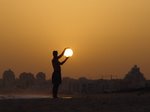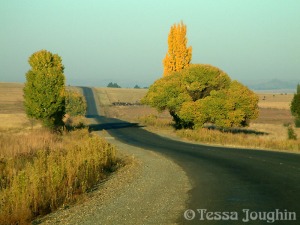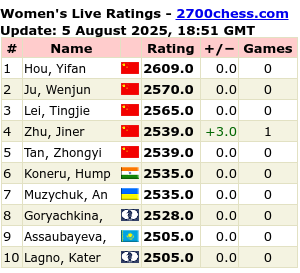This entry is more about a new Afrikaans song by Steve Hofmeyr – he sings in English too, and if you like the voice of Neil Diamond, then you will surely like his music too. Anyway, this new Afrikaans song is a protest song and I was reading on the link, in this post, about protest songs. Afrikaans is a young language and since the start Afrikaans struggled to survive. The British settled in South Africa in 1820 and then after the South African-British War – Boer War – Afrikaans was also ‘banned’. In primary schools, if you dared to speak your mother tongue [Afrikaans], you got a board around your neck stated ‘Donkey’ on it. At the moment, Afrikaners [not Africans] again, have to fight to survive. Not just to survive as a human race, but also the language as such. Farmers get murdered on a weekly basis [don’t forget the murders in the towns and cities too.] The world is IGNORANT!
Goethe said, “There is nothing more frightening than active ignorance.”
I’ve found the lyrics to the song and also some English words to it [to part of it], but you will get the ‘message’. ‘Apartheid’ was nothing comparing to what happens now in our beautiful country. And if you really think you know everything about Apartheid, then I think you know just a tiny drop in the ocean of what it really was. Being in the UK now for long enough to know what they ‘know’ about ‘Apartheid’, is enough to tell me that they believed anything that was dished up to them as ‘Apartheid’. We all know what the ANC tried to achieve with their ‘campaigns’ and with a world full of narrow-minded people, they achieved what they wanted including the toi-toi on Trafalgar Square in the 1980’s and their sad sing-songs in America. Also, I think some of us know WHY things happened as it happened – like the Zimbabwean-ordeal – and it is just a matter of ‘time’ and South Africa will be there too – then those ‘waiting’ will ‘close in’.[and I’m not referring here to ‘those’ as the Afrikaners]. During the Boer War the British found it hard to win the war… we are a nation made up from different nations. We will fight and stand up again. Ex Unitate Vires= Unity is Strength
Read more about us here:
THE BOER NATIONS
Take a community of Dutchmen of the type of those who defended
themselves for fifty years against all the power of Spain at a time
when Spain was the greatest power in the world. Intermix with them a
strain of those inflexible French Huguenots who gave up home and
fortune and left their country for ever at the time of the revocation
of the Edict of Nantes. The product must obviously be one of the most
rugged, virile, unconquerable races ever seen upon earth. Take this
formidable people and train them for seven generations in constant
warfare against savage men and ferocious beasts, in circumstances
under which no weakling could survive, place them so that they acquire
exceptional skill with weapons and in horsemanship, give them a
country which is eminently suited to the tactics of the huntsman, the
marksman, and the rider. Then, finally, put a finer temper upon their
military qualities by a dour fatalistic Old Testament religion and an
ardent and consuming patriotism. Combine all these qualities and all
these impulses in one individual, and you have the modern Boer — the
most formidable antagonist who ever crossed the path of Imperial
Britain. Our military history has largely consisted in our conflicts
with France, but Napoleon and all his veterans have never treated us
so roughly as these hard-bitten farmers with their ancient theology
and their inconveniently modern rifles. —Arthur Conan Doyle
Click THIS link to read the entire article by Arthur Conan Doyle.
Arthur Conan Doyle (1859-1930), Scottish author and creator of the oft-quoted detective-hero Sherlock Holmes wrote The Adventures of Sherlock Holmes (1891)
On THIS LINK link, – on my blog – I said in 2007 that I hope we as a nation will – again – rise and stand together one day. Eventhough we are scattered all over the planet at the moment, I do look forward to that day when things will ‘come together’ for all of us.
What is protest music? In April 1966, Bob Dylan arrived in Stockholm as part of his controversial “electric” world tour, and a local interviewer asked him why he was no longer writing and performing protest songs. Dylan, irritated and more than a little out of it, objected to the question’s premise and called one of his new rock ’n’ roll compositions the very height of protest music: “Very, very protesty. And, uh, one of the protestiest of all things I ever protested against in my protest years.”
Please click HERE to read the entire article.
Ons Sal Dit Orleef
Ons sal dit oorleef – Steve Hofmeyr
“Daar’s ‘n land en ‘n volk in een taal gedoop
Met gebede en buskruit en bloed gekoop
Wat weer en weer van sy knie af moet streef
Ons sal dit oorleef…
Uit die kake van oormag deur die vuur op ons werf
Staan die engele by ons vroue en die kinders wat sterf
Elke grafsteen een standbeeld vir die wat bly leef
Ons sal dit oorleef…
My hart klop toktokkie waar hy breek vir my volk
Voor die kakie kanon of die k****r se dolk
Dit maak nie meer saak nie waar ons ons begeef
Ons sal dit oorleef…
Ek lig my oë tot die berge op
Waar sal my hulp tog vandaan kan kom
Ag my God jou woorde lê deur my geweef
Ons sal dit oorleef…
Ek staan vandag op jou plaas ou vriend
Daar hang stof oor die stilte sovêr ek kan sien
Maar die geeste van gister sal more herleef
Ons sal dit oorleef
Some of the words in English.
My heart beats toktokkie where it breaks for my people
against the English (Khaki) canons or the Kaffir’s dagger
It matters none where we now are heading
We will survive this ordeal …
I raise my eyes to the mountains
ask where will my help arrive from?
Oh my Lord your words are woven within me…
We will survive this ordeal…
English lyrics: whatishappeninginsouthafrica.blogspot
Conversation between Theodore A… and Steve on Twitter [you might want to click the image for a clear view]
































































